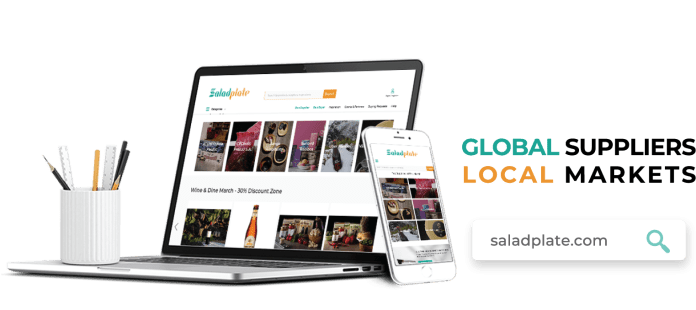Food Market Hub(FMH) and Saladplate.com(Saladplate), a procurement and inventory system platform and online marketplace for suppliers and buyers are one of the industry players supporting the digitalisation journey of F&B businesses.
In an interview with BusinessToday, the founder of Saladplate Dave Chan, and founder of FMH Anthony See discussed the digitalisation journey of F&B business.
“Through this partnership, the platform aims to support F&B businesses by enabling them the ability to reach out to a wide network of brands, while providing them with a comprehensive local procurement platform.
“The platform is designed to offer a seamless business management user experience, to help businesses in the F&B sector regain normalcy during this current climate, and perhaps scale in the foreseeable future,” they say.
Digitalisation
The collaborators believe that digital platforms will continue to play a key role in enhancing business by expanding more digital tools and that this will be a more sustainable business model that will work both online and offline.
“In the foreseeable future, digital platforms such as the one by Saladplate and FMH will continue to play an important role in helping businesses to adapt operations to utilize more digital tools, equipping them with a more sustainable business model that operates online as well as offline.
“During the pandemic, we’ve seen digital channels a necessity for F&B businesses to develop alternative revenue streams during this period of restrictions and into economic recovery or thereon,” Dave and Anthony says.
“Businesses need to make sure the digital route they undertake is capable of paving a way to regain business normalcy while providing the necessary cybersecurity assurance.
“FMH and Saladplate platform both operate on stringent validation processes, verifying every brand and product are legitimate and the businesses are trustworthy. We also make sure the delivery timeframes are accurate to reduce logistic uncertainties.
“This is to ensure a safe digital environment is established, to protect the interest of both suppliers and buyers against possible fraud and unpleasant surprises so they can conduct business with peace of mind,” they say.
A report by Bain & Company reported that around 83% of online buyers are likely to continue their increased spending online even after the lockdown restrictions are lifted.
Challenges
When the lockdown was first announced in March 2020, the F&B industry faced its own unique set of challenges to remain operational.
According to Dave and Anthony, F&B businesses faced challenges when the COVID-19 hit, especially when adapting to digitalisation and putting trust in the system.
“F&B businesses also struggled to stay afloat during the pandemic. The main challenge was leaping to adopt and adapt digitalisation into their operations.
“Many businesses in the F&B industry transitioned from their traditional operations to putting their trust in digital platforms. For some, it was relearning a new skill whilst for others, it was putting their knowledge into practice,” they say.











